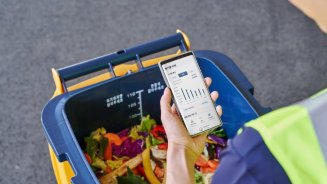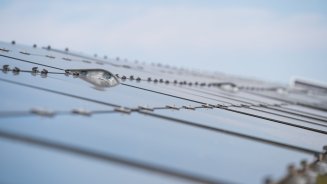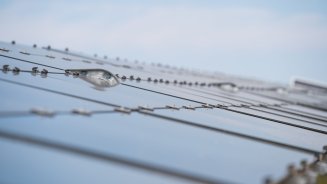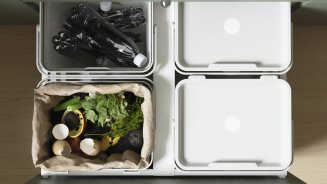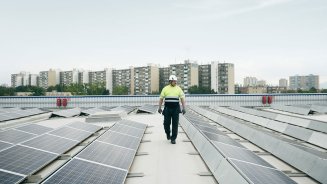As one of the world’s largest food providers, Ingka Group is taking the next step in making plant-based food more affordable and accessible for the many people. As of October 1st, all Ingka Group markets will offer the plant-based food at the same or lower price than the meat-based alternatives. This includes the veggie balls, plant balls, veggie hot dogs, and the plant-based soft ice. The aim is that by 2025, 50% of the main meals offered in the restaurant are plant-based.
Ingka Group, the largest IKEA retailer, prepares and serves food to almost 600 million people, annually and by making plant-based food more affordable and accessible the company sees an opportunity to enable and inspire many more people to make more sustainable choices. Recent studies confirm that 9 out of 10 people (87%) are willing to take action to tackle climate change* and a significant number of meat eaters would be willing to switch to plant-based alternatives if they taste equally good and were not more expensive. **
“Plant-based food, and food in general, is one important ingredient to support the transition to net-zero. By making more sustainable options available for the many people, we hope to inspire and enable them to take the step and test a veggie hot dog, instead of maybe choosing a meat-based meal. Within IKEA we believe that sustainable choice should be affordable for the many, not a luxury for the few”, says Jesper Brodin, CEO Ingka Group.
IKEA is committed to the Paris Agreement and to contributing to limiting global warming to 1.5°C by becoming climate positive. This includes reaching net-zero emissions latest 2050 and halving the greenhouse gas (GHG) emissions in absolute terms from the total IKEA value chain by 2030.
As the biggest retailer in the IKEA franchisee system, Ingka Group is more determined than ever to be part of solving the climate crisis and showing that a more sustainable living can be affordable and accessible for the many people. This includes offering a number of services and solutions for a more sustainable life at home, including introducing a wider offer of plant-based options, buy back and take back services, in-store circular hubs, online platforms for second-hand products, and offering clean energy services.
“With our size and reach we have an opportunity to make healthier and more sustainable living affordable and accessible to people around the world. The food system today contributes 25-30% of global greenhouse emissions of which a significant part comes from livestock production. *** A shift towards more plant-based diets, whilst reducing meat and dairy consumption, is one of the most impactful contributions individuals can have on reducing their GHG emissions.“ says Karen Pflug, Chief Sustainability Officer, Ingka Group.
“We have rolled out a range of plant-based dishes and products over the years and they have shown good sales results, particularly in Germany, Japan and Sweden. In the IKEA Kobe store in Japan, a city famous for its beef, the plant ball now has a 50/50 share of sales with meatballs,” she concludes.
* Climate Action Research 2021: This survey was conducted online using national consumer research panels to recruit respondents in 32 countries with a total sample size of 34,059 adults (aged 18+). The study ran in May and June 2021 in Australia, Austria, Belgium, Canada, China, Croatia, Czech Republic, Denmark, Finland, France, Germany, Hungary, India, Ireland, Italy, Japan, the Netherlands, Norway, Poland, Portugal, Romania, Russia, Serbia, Slovakia, Slovenia, South Korea, Spain, Sweden, Switzerland, the UK, Ukraine, and the USA.
** Healthy & Sustainable Living is an annual global consumer insights research programme by Globescan designed to help brands understand shifting preferences and behaviors related to healthy and sustainable living. In a recent Healthy and Sustainable Living survey, covering 27,000 people, 41% of meat-eaters said they would switch to plant-based alternatives if they tasted good and weren’t more expensive.
*** The Intergovernmental Panel on Climate Change (IPCC) Report, Chapter 5 – Food security as an outcome of the food system. https://www.ipcc.ch/site/assets/uploads/2019/08/2f.-Chapter-5_FINAL.pdf
Media enquiries
For further information, journalists and media professionals can contact us at [email protected] or by calling +46 70 993 6376.



